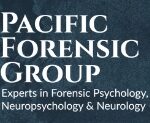Much of my theoretical work involves exploring unspoken messages and biases embedded within forensic psychology paradigms. For this reason, I was fascinated when I first stumbled across the esoteric construct of “hebephilia” back in 2007. It was a made-to-order exemplar for training purposes, to illustrate the ethical pitfalls of psychiatric diagnosis in the forensic arena.
Awards Distinguished Scientific Achievement in Psychology, California Psychological Association(2012) Harry Frank Guggenheim Dissertation Fellowship Research and Scholarship Award, Monette/Horwitz Trust Licenses Clinical Psychologist, California (PSY 16570) Clinical Psychologist, Washington (PY 2305) Licensed Private Investigator, California Education Bachelor of Arts in Journalism, San Francisco State University, Summa cum laude Ph.D. in Clinical Psychology, California School of
Commentary Frequent media commentator on forensic topics Television, radio, and video interviews Guest essays in major media outlets News coverage Hate crime research, multiple-perpetrator rape theory, and other work featured in New York Times, Los Angeles Times, Boston Globe, PBS, and other venues New York Times Rolling Stone CNN NPR Guardian of UK Reuters
This is a companion resource to my Ethics Corner column in the March 2011 issue of California Psychologist magazine. It provides background resources on ethical conundrums in prison and jail settings. The column itself, “Ethics and Captive Populations,” is available HERE. Those who so glibly construct hurtful and defeating labels – “psychopath,” “sociopath,” “criminal
Multiple-perpetrator rape is an astonishingly understudied topic. In the sex offender industry, group rapists are typically lumped together with other types of sex offenders, including solo rapists and pedophiles. This is a big mistake. In many cases, multiple-offender rape has little to do with sex. Rather, it is often a form of cultural theater, in
Forensic psychologists are licensed clinical psychologists who specialize in applying psychological knowledge to legal matters, both in the criminal and civil arenas. Forensic psychology is a sub-discipline of psychology, with its own professional organizations, training programs, and research journals. Legal issues in which forensic psychologists are frequently involved include the mental state of criminal defendants
Research & Publications Teaching Media
Dr. Franklin enjoys solving complex psycholegal mysteries. She approaches each case as unique, analyzing the individual, the circumstances, and the interplay between the two as it pertains to the relevant legal issue. Her state-of-the-art evaluations combine evidence-based methods with keen investigatory skills and knowledge of relevant empirical research. Grounded in journalism, her written reports explain
KAREN FRANKLIN, Ph.D. is a licensed clinical psychologist in the San Francisco Bay Area and an instructor at the California School of Professional Psychology (Alliant International University). She specializes in the evaluation and treatment of criminal defendants. Her research on the motivations of hate crime offenders was awarded a Monette/Horwitz Trust Award and a Harry


